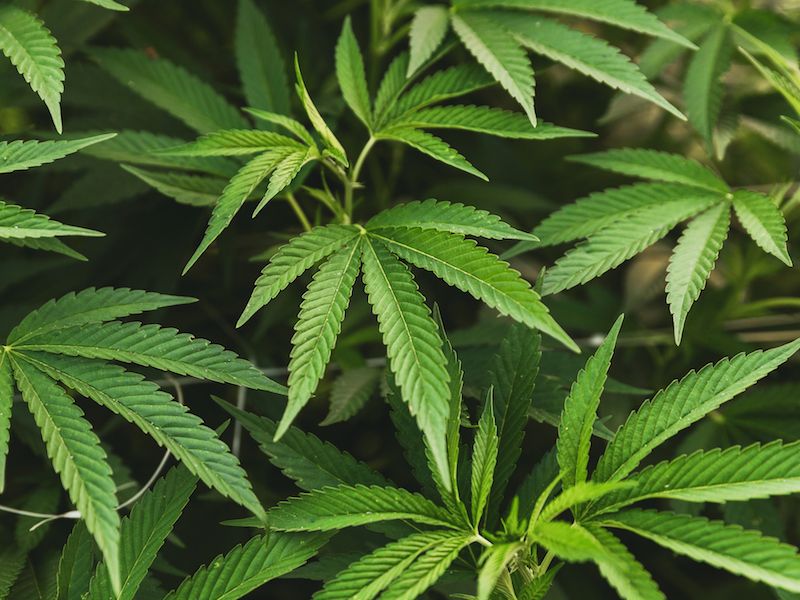
Public opinion about cannabinoids and marijuana have transformed incredibly over the past several decades. THC, cannabinoids, and even marijuana are legal for medical application in most states. A decade ago it would have been unthinkable for pot to be legal for recreational use but some states have even taken this step.
A group of substances derived from the cannabis plant (the marijuana plant, essentially) are known as cannabinoids. Regardless of their recent legalization in some states, we’re still finding out new things about cannabinoids. Although we now are beginning to understand the numerous medical benefits of these compounds, it has been recognized for a while that tinnitus may be activated by cannabinoids.
Many Forms of Cannabinoids
There are numerous forms of cannabinoids that can be taken now. It isn’t just weed (or ganja, or refer…..ok, there are a lot of nicknames for marijuana so let’s move ahead). These days, THC and cannabinoids are available in pill form, as lotions, as inhaled vapor, and more.
Each state has it’s own laws regarding what forms of cannabinoids you can get, and many of those forms are still technically illegal under federal law if the THC content is over 0.3%. That’s why some people tend to be quite careful about cannabinoids.
The concern is that we don’t yet grasp much about some of the potential side effects or risks of cannabinoid use. Some new research into how cannabinoids affect your hearing is a perfect example.
Cannabinoids And Your Hearing, Some New Studies
Whatever you would like to call it, cannabinoids have long been associated with improving a large number of medical ailments. Vertigo, nausea, seizures, and more seem to be helped with cannabinoids, according to available anecdotal evidence. So could cannabinoids assist with tinnitus? That’s what scientists decided to figure out.
Turns out, cannabinoids could actually cause tinnitus. Based on the research, more than 20% of study participants who used cannabinoid products documented hearing a ringing in their ears. And that’s in people who had never dealt with tinnitus before. What’s more, marijuana users were 20-times more likely to report having tinnitus symptoms after 24 hours.
And for people who already have tinnitus, marijuana usage made it worse. This basically means, there’s some pretty convincing evidence that tinnitus and cannabinoids don’t really mix all that well.
How Cannabinoids Make Tinnitus Worse
There are a couple of definite ways that cannabinoids can make your tinnitus experience worse. The first is that your tinnitus can become more frequent. Also, your bouts of tinnitus can get more extreme when you’re using cannabinoids. The discomfort from the ringing could become more noticeable or harder to ignore.
The study also appears to indicate that cannabinoids can cause the onset of initial tinnitus symptoms. To put it another way: after you start using cannabinoids you could develop tinnitus symptoms even if you didn’t have them before.
It’s Still Unknown What Causes Tinnitus
Just because this connection has been discovered doesn’t actually mean the root causes are all that well understood. It’s apparent that cannabinoids can have an impact on the middle ear and tinnitus symptoms. But what’s causing that impact is much less clear.
But we can say for certain that marijuana is one of the few frequently used mood-altering substances that causes tinnitus (alcohol, for example, hasn’t been demonstrated to have a strong connection with tinnitus).
Research, unquestionably, will continue. Cannabinoids these days come in so many kinds and forms that discovering the underlying link between these substances and tinnitus would help people make better decisions.
Beware The Miracle Cure
Recently there has been a lot of hype created around cannabinoids by marketers. That’s partly because mindsets are transforming about cannabinoids (and, it could also mean that people are trying to get away from opioid use). But this new research clearly shows that cannabinoids can and do produce some negative effects, particularly if you’re worried about your hearing.
The marketing about cannabinoids has been especially aggressive and you can’t completely steer clear of all of the enthusiasts.
But this new research certainly suggests a strong link between tinnitus and cannabinoids. So regardless of how much advertising you see for CBD oils, if you’re concerned about tinnitus, you should most likely keep away from them. It’s worth being cautious when the link between tinnitus and cannabinoids has been so solidly established.
